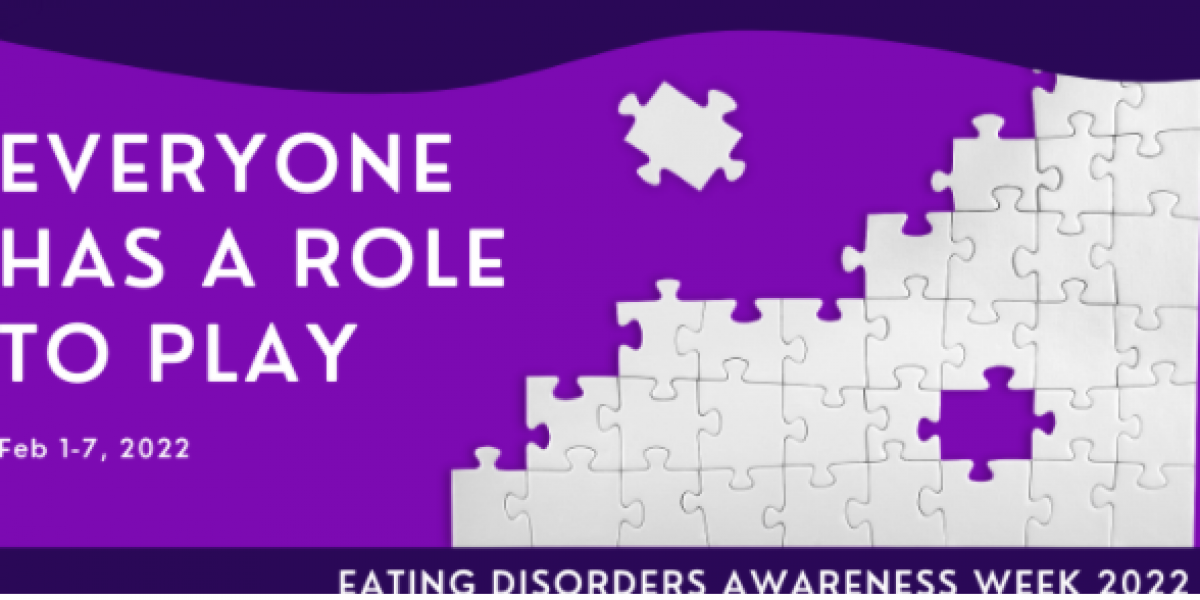February 1-7 is Eating Disorder Awareness Week, which is even more relevant during the pandemic with rates of eating disorders going up. It can be stressful to have someone you know struggle with an eating disorder. It’s helpful to educate yourself, behave in ways that support a positive body image and relationship to food, and take time to care for yourself as well.
Learning more about eating disorders can help you understand what that person might be going through. For someone with an eating disorder, restriction and/or binges can ruin their wellbeing and lower life expectancy. That person can be very self-critical and see their body much differently than others do. Despite how serious eating disorders are, someone who is struggling may not get help if they are afraid of being judged or don’t believe their problem is serious enough. Recovering from an eating disorder can feel like a huge task because starvation, overeating and/or purging can be ways to cope with other challenges in life. Know that eating disorders are medical conditions and professional support can take away some of the burden.
If you’re concerned about a loved one, find a non-meal time to bring up your concerns. Focus on how you see their eating disorder hurting their health, relationships or responsibilities, without focusing on their body shape. You can also model a positive body image and a healthy attitude toward food by:
- Complimenting people on qualities not related to weight or looks, and avoiding any negative comments about your own or other peoples’ bodies.
- Focusing on healthy behaviors regardless of weight, and avoiding weight-loss diets.
- Not labeling food as “good” or “bad” to avoid tying food into self-worth, as this can lead to restriction, binging afterwards then feeling bad about eating.
If the person struggling with an eating disorder is your child, then you have a role in their treatment and should get them help even if they don’t want it. In addition to the suggestions above, other tips to try include:
- Teaching them about the benefits of healthy eating, and to eat when they are hungry and stop when they are satisfied. This means letting them have more food if they’re still hungry and respecting their choice if they are too full to finish their plate (this may change with anorexia). Remember that the amount they need changes as they grow and with changes in activity.
- Not using food as a reward or a punishment, which can lead to seeking out food for comfort or self-punishment.
- Teaching critical thinking around how advertising can cause body dissatisfaction.
It can be easy to fixate on someone’s eating disorder but it’s still important to work on your relationship by talking about other things too and doing activities together. Keep taking care of your own emotional and physical needs as well to not get burned out.
Support is important for someone struggling with an eating disorder so let them know you believe in their recovery. If you think your child is affected by harmful eating habits, reach out to your healthcare provider for help – whether it’s for you or for them.
Michelle Broughton, Registered Dietitian



